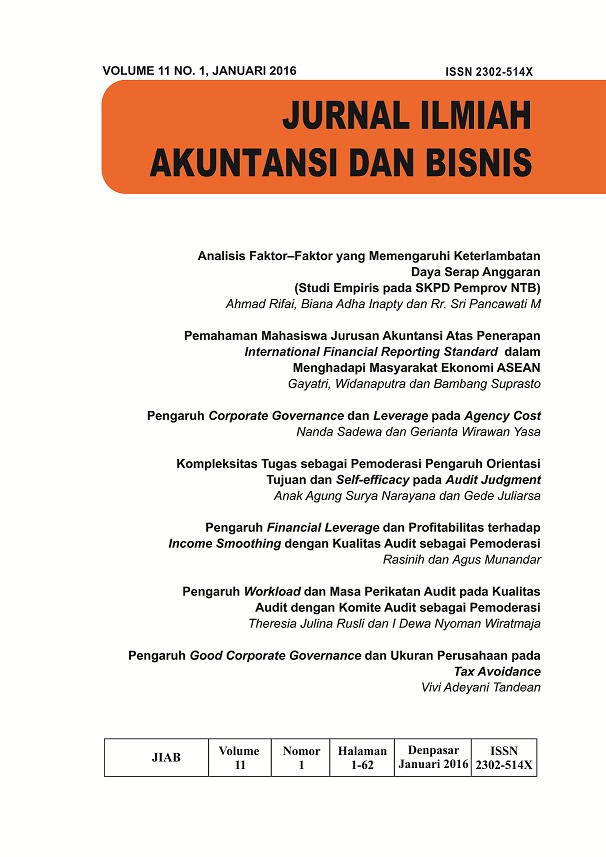Kompleksitas Tugas Sebagai Pemoderasi Pengaruh Orientasi Tujuan dan Self-Efficacy Pada Audit Judgment
Abstract
The research objective is to obtain empirical evidence of the ability of the task complexity in moderating the influence of goal orientation and self-efficacy on audit judgment. This research was conducted at the public accounting firm in Bali in 2015. The number of samples taken 70 auditors who are willing to participate in this study. The sample in this study was determined by saturation sampling method. Data was collected using a survey method. The data analysis technique used the analysis Moderated Regression Analysis (MRA). Based on the results of the study found that the task complexity is significantly moderate the influence of goal orientation and self-efficacy on audit judgment. The test results of interaction with the task complexity goal orientation (X1X3) showed a significance level of 0.003 and the results of testing the interaction of selfefficacy with the task complexity (X2X3) showed a significance level of 0.000.
Keywords : Task complexity, orientation purpose, self-efficacy, audit judgment




















